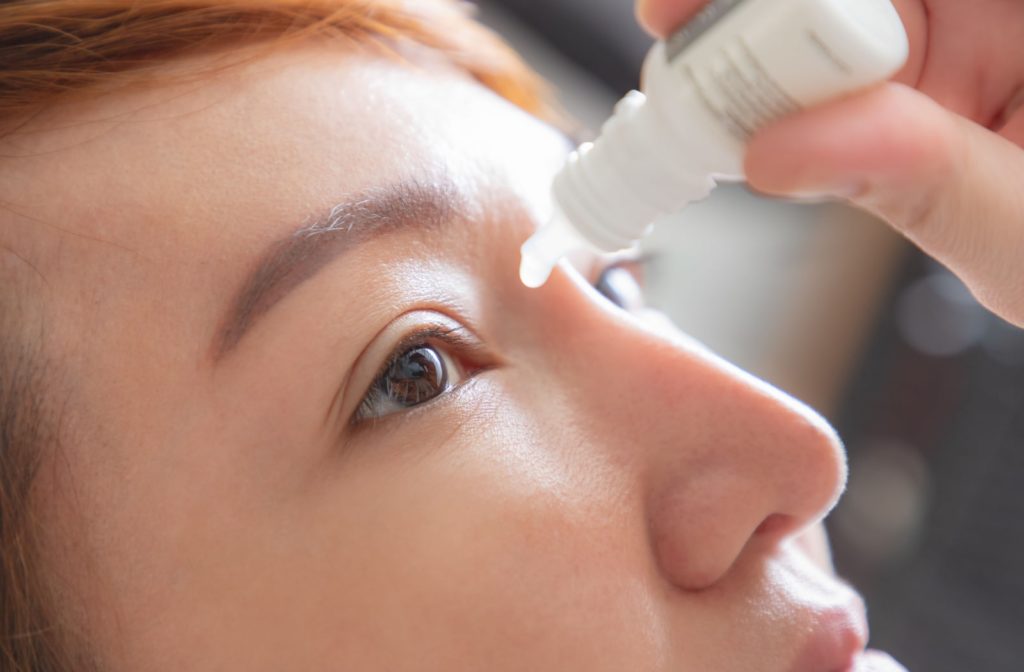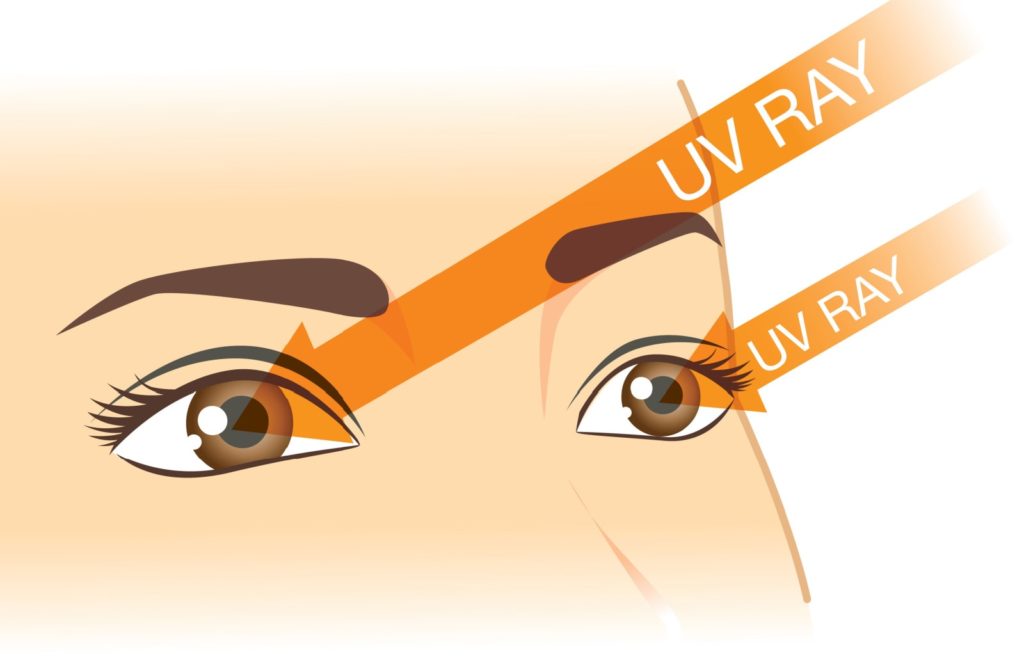Taking your family out on a sunny day can be lots of fun, but too much exposure to the sun’s light and warmth can lead to a sunburn. While most people think of skin damage when it comes to sunburns, it’s also possible to sunburn your eyes.
You may have heard this condition referred to as photokeratitis or snow blindness (when it happens in colder climates). It occurs when the eyes are exposed to too much ultraviolet (UV) radiation from the sun or other light sources. Much like sunburns on your skin, your eyes are susceptible to UV radiation, and repeated overexposure can lead to more severe eye conditions.
Protect your eyes and watch for the signs that you might’ve gotten a sunburn.
Causes of Sunburned Eyes
The leading cause of sunburned eyes is exposure to UV radiation from the sun, but the sun isn’t the only source of UV radiation you may encounter. UV radiation is present in both natural and artificial light sources, including tanning beds and even welding equipment.
Even if you’re not looking directly at the sun, its light can bounce off water and sand when you’re spending time on the beach. The city’s reflective cars, buildings, and concrete streets can also reflect UV radiation, even on a cloudy day. Reflected UV light is a stronger UV ray, and it’s more magnified.
UV exposure doesn’t just happen on sunny summer days, either. UV radiation can bounce off snow and ice and cause snow blindness.
UV radiation can cause damage to the cornea (the clear front of your eye) and the conjunctiva (the clear membranes covering the white of the eye and the inside of your eyelids).
Symptoms of Sunburned Eyes
The symptoms of sunburned eyes can range from mild to severe, depending on the amount of exposure to UV radiation. Common symptoms include:
- Pain in the eyes
- Redness
- Blurry vision
- Light sensitivity
- Grittiness
- Headaches
- Watery eyes
- Eyelid swelling or twitching
Your optometrist can diagnose your condition by examining your eyes and asking questions about recent activities. They may also use a dye to inspect your cornea for UV damage.
Dangers of Long-Term Sun Exposure
Sunburned eyes can be uncomfortable, but prolonged exposure to UV radiation can also increase your risk of developing more severe eye diseases, such as:
- Cataracts
- Macular degeneration
- Eyelid skin cancinomas and melanomas
Much like a sunburn on your skin, you likely won’t feel the effects of UV radiation on your eyes until much later. Take steps to protect your eyes from the sun, especially during the middle of the day when UV radiation is the strongest.

Treatment for Sunburned Eyes
The pain from sunburned eyes often goes away on its own after a few days, so it’s best to focus on reducing symptoms. Some steps you can take to make your eyes feel better include:
- Staying in a dark room
- Removing your contact lenses if you wear them
- Placing a cool, damp washcloth over your eyes
- Using artificial tears
- Avoiding rubbing your eyes
Your eye doctor may recommend taking certain pain medication or using antibiotic eye drops.
See your eye doctor if your symptoms don’t fade in a day or two. Also, keep an eye out for any of the following symptoms which indicate you should see your optometrist as soon as possible:
- Halos around lights
- Vision that is blurry, dim, fuzzy, or distorted
- Light sensitivity
- Areas of shadow in the middle of your vision
- Lack of night vision
Preventing Eye Sunburns
One of the best things you can do for your eyes is to protect them from the sun. Preventing sunburns is often much easier than treatment, and it’s possible you won’t see the effects until it’s too late to do anything about it.
With a few easy steps, you can keep your eyes safe from UV radiation:
- Wear quality sunglasses that block 99–100% of UV light whenever you’re in the sun
- Wear a hat with a wide brim
- Be aware of the sun reflecting off water, sand, and snow
- Stay in the shade during the late morning and early afternoon when the sun is the most intense
Eye Protection for the Whole Family
Just like sunscreen protects your skin, sunglasses protect your eyes. Discover Eyecare carries a range of sunglasses for the whole family that can block harmful UV rays and look great doing it.
Don’t leave your eyes unprotected. Visit us today and discover what our committed team can do for you.



